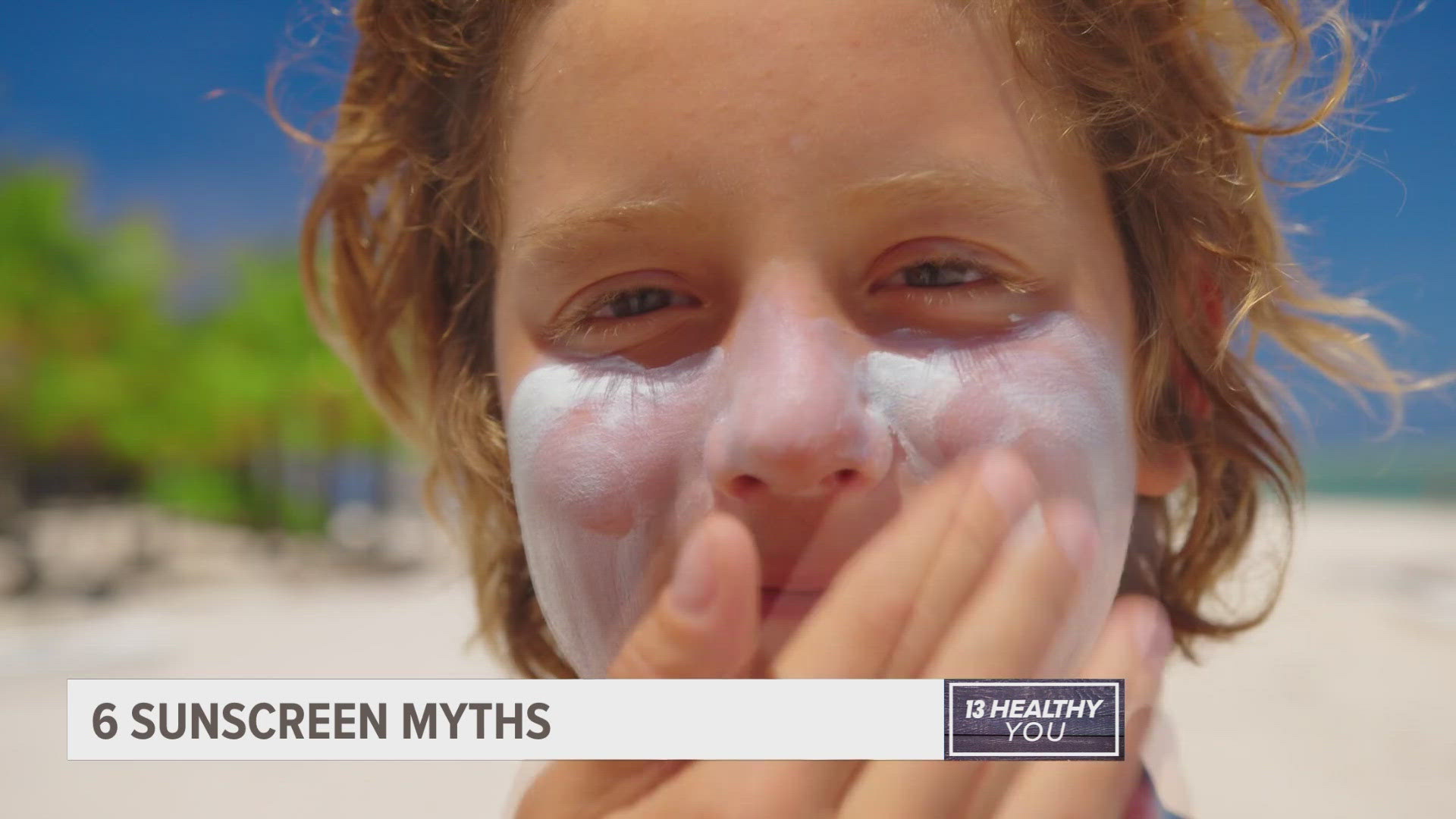GRAND RAPIDS, Mich — Wearing sunscreen is vital to preventing skin cancer and other skin conditions. 13 ON YOUR SIDE spoke to Dr. Andrew Schuler, a dermatologist with the University of Michigan Health-West. Overall, he recommends wearing a daily baseline of SPF 30 or greater sunscreen, applied to the neck up, and reapplied every two hours.
He talked about the six common misconceptions about sunscreen he hears in his office.
Myth #1: It doesn't matter what time of day you go out in the sun.
This is false. While Schuler said the UV rays are strongest between 10 a.m. and 4 p.m., there is still UV exposure at all times of day.
"Technically, you still need sunscreen even from down to dusk," said Schuler.
Myth #2: You can't get sunburnt on a cloudy day or in the winter.
You can get sunburnt any time of the year, even with clouds or snow. Sunscreen should be applied year-round.
Myth #3: I need a "base tan" for vacation.
While it is true, says Schuler, that lighter-skinned patients who tan are at a lower risk of skin cancer than those patients who typically cannot, tanning is still doing damage to your skin.
"These insults are going to add up over time," said Schuler. "They're going to increase your skin cancer risk. They're also going to, importantly, result in the signs of early aging the skin, which nobody likes. That's fine lines, wrinkles and brown spots."
Myth #4: I don't need sunscreen because I have darker skin.
Again, while darker-skinned people are at a lower risk of skin cancer than those with lighter skin, skin cancer does still occur for those with darker skin. Plus, there are other skin conditions to worry about.
"Certain pigmentary conditions like melasma, and post-inflammatory hyperpigmentation, occur at higher rates in patients with darker skin," said Schuler. "It's important to know that these conditions are actually exacerbated by sunlight and even visible light."
Myth #5: My makeup has sunscreen in it and that is all I need.
In general, Schuler said makeup with SPF is not sufficient to protect the skin from the sun. Dermatologists still recommend a daily facial sunscreen with SPF 30 or greater.
Myth #6: The greater the SPF, the greater the protection.
This is partially true.
"An SPF 30 or greater is still going to block around 97% of the sun's harmful UV rays, you'll get some degree of benefit for increasing your SPF to 50 or 90 or 100 from there, but it's really not going to move the needle that much," said Schuler.

